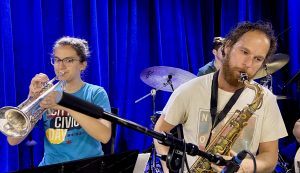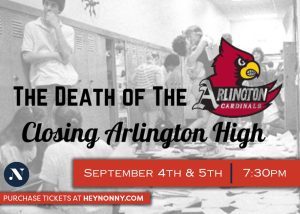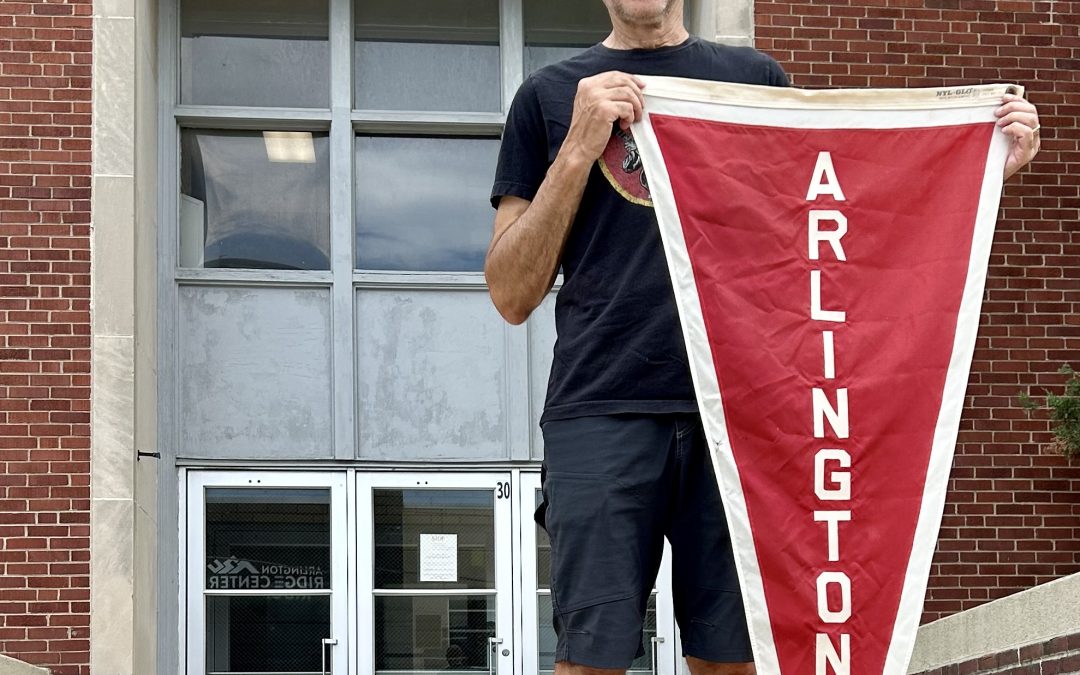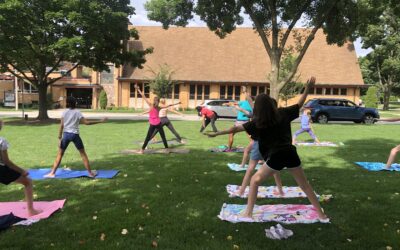Chip Brooks spent 36 years as a partner in a Chicago law firm, so he knows a thing or two about research and writing. Now celebrating his sixth year as co-owner of Hey Nonny in Arlington Heights, he has developed a unique series to compliment the lineup of performers who play the venue: musical shows about Arlington Heights history.

Band members Emily Kuhn and Music Director Neil Carson on sax, rehearse on Monday.
His latest is The Death of the Cardinals: the Closing of Arlington High School. Hey Nonny is working in collaboration with the Arlington Heights Memorial Library and the Arlington Heights Historical Society to commemorate the 40th anniversary of the closing, a wound, he says, which still stings.
“I didn’t grow up in Arlington Heights, but in my 37 years in this town, I’ve heard a lot about the pain of Arlington High closing” Brooks says, “so I really wanted to try to figure out what happened – what went wrong.”
The show debuts at 7:30 p.m. Sept. 4 and 5 at Hey Nonny. Musicians began rehearsing this week to play a live soundtrack to the dramatization. Numbers will include some historical selections as well as early 1980s hits, including John Lennon’s Nobody Told Me, Journey’s Who’s Crying Now? and Feeling Stronger Every Day by local kids turned superstars, Chicago. Purchase tickets here.

Brooks drew on his legal background when he poured over the 30 public meetings and hearings, as well as the public outcry and even lawsuits that eventually led to the school’s closing.
Arlington High School opened in 1922 and for 34 years it was the only high school in Northwest Suburban High School District 214. The post-war baby boom played a big role. Between 1957 and 1973, the district added seven more high schools to handle the rapidly growing student population, but then the student population declined as fast as it had risen.

Band members also will have roles in the show.
Schools had to be closed and Brooks’ research shows a series of mishaps and manipulation that led to the 1983 decision to close Arlington High. As Brooks dove deeper into the records, he became intrigued with how much the closing of Arlington High School shaped the community.
“This particular historical moment has a lot to say about who we are as a community,” Brooks says, “so it will be really fun and interesting for newer residents, as well as those who were here for the action in the early 1980s.”




